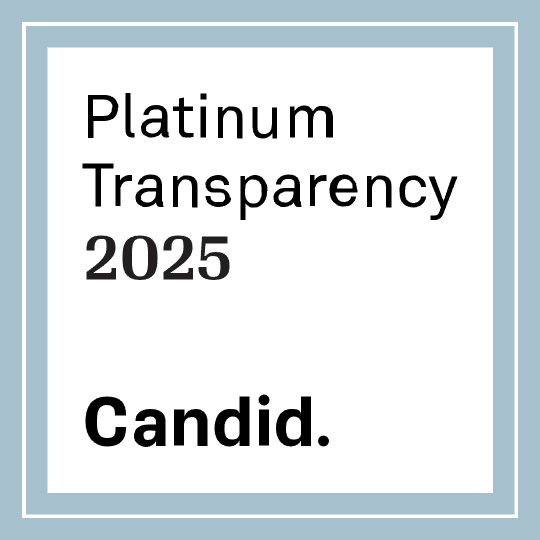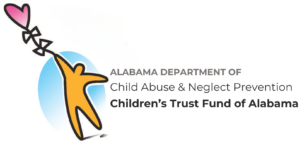Societal stigmas exist everywhere and are propelled by myths and misconceptions that prevent us from experiencing a life of endless possibility. This is especially true for people who are seeking sobriety. These myths lead to harsh stigmas, making it difficult for those to seek help because change seems impossible to them. Struggling addicts may choose to suffer in silence rather than seek the help they need out of fear of being judged or by falling victim to the many myths about recovery.
Some of these myths thrive in our culture and many of them are presented as facts. In response to these lies, it is important to expose them and combat them with the truth. Below we will engage with 7 of the most popular ideas about sobriety that result in hindering healing.
Myth #1: Sobriety isn’t fun.
One of the biggest myths surrounding sobriety is that life without drugs and  alcohol is monotonous and absolutely boring. However, this particular preconceived notion could not be further from the truth. Change is intimidating for all who experience it – sober or not. Mainstream media often portrays fun as spending time indulging in your favorite all-American past time while sipping down a cold one. However, for individuals who struggle with addiction, what was once a fun activity turned into a full-fledged addiction. Personally, blacking out and not being able to recall what I did the night before was not my idea of “fun.” As I became invested in my recovery, I began to learn a lot about myself. It was not long before I discovered how much more time, money, and resources I acquired in my sobriety that I could use to pursue the hobbies and goals I had always wanted to try.
alcohol is monotonous and absolutely boring. However, this particular preconceived notion could not be further from the truth. Change is intimidating for all who experience it – sober or not. Mainstream media often portrays fun as spending time indulging in your favorite all-American past time while sipping down a cold one. However, for individuals who struggle with addiction, what was once a fun activity turned into a full-fledged addiction. Personally, blacking out and not being able to recall what I did the night before was not my idea of “fun.” As I became invested in my recovery, I began to learn a lot about myself. It was not long before I discovered how much more time, money, and resources I acquired in my sobriety that I could use to pursue the hobbies and goals I had always wanted to try.
Truth: Sobriety provides a greater amount of opportunities for freedom and fun than addiction could ever offer.
Myth #2: There is only one way to stay sober.
In the first few weeks of being sober I was introduced to the idea that, in order to maintain long term sobriety, I must attend one specific program and continue to partake in that specific fellowship for the rest of my life. While one fellowship may be better for me, there are several pathways to maintain continuous sobriety. For example, 12-step fellowships are one component of sobriety, but there are other paths to recovery including participation in programs such as Refuge Recovery, SMART Recovery, LifeRing, online meetings, religious support groups, and many more. What matters most is finding which one is the best fit for you. As long as it is keeping you sober, that is all that matters.
Truth: Recovery is not a one-size-fits-all process. There are several different paths to sobriety.
Myth #3: Life in sobriety is worry-free.
When I began my sobriety journey, I assumed that once I put the drugs and the alcohol down, my life would become conflict-free. This delusion was absolutely false. It wasn’t long before I found the wreckage of my past creeping in and meeting me right where I was in sobriety. The truth is, I spent years of my addiction avoiding life and removing myself from everyday responsibilities. I hurt many people that I loved, neglected responsibilities, and even broke the law. These past decisions did not absolve themselves because I got sober. In fact, I did not address any of these issues until I was in recovery and became more prepared to deal with life as a sober member of society. Today, life still happens on life’s terms. However, I am able to face these challenges with more self-efficacy than before.
Truth: Life continues on and trials happen, even in sobriety.
Myth #4: You must hit rock-bottom to have the desire to get sober.
 Comparing our situations and “bottoms” to others is quite possibly one of the most dangerous and destructive things we can do. For a long period of time, I justified my substance use because I had a prescription and I was not homeless on the streets begging for change. Although true, I was still spending every day not only taking my prescription outside of the recommended dose, but also turning to the streets to buy more. This mentality kept me stagnant and prolonged my active addiction. There are many individuals who have and continue to seek sobriety no matter how minor or severe the consequences are. While you may not have to hit rock bottom to obtain sobriety, anyone can benefit from trudging down the road to recovery.
Comparing our situations and “bottoms” to others is quite possibly one of the most dangerous and destructive things we can do. For a long period of time, I justified my substance use because I had a prescription and I was not homeless on the streets begging for change. Although true, I was still spending every day not only taking my prescription outside of the recommended dose, but also turning to the streets to buy more. This mentality kept me stagnant and prolonged my active addiction. There are many individuals who have and continue to seek sobriety no matter how minor or severe the consequences are. While you may not have to hit rock bottom to obtain sobriety, anyone can benefit from trudging down the road to recovery.
Truth: Anyone can benefit from being sober and you can get sober at any time in your life.
Myth #5: Addicts and alcoholics are bad people.
From the rich to the poor, convicted felons to avid church-goers – addiction does not discriminate. Societal stigmas have propelled a taboo assumption that individuals who become addicted are weak-minded and “bad” people. While it is true that individuals stuck in the progressive grips of drug and alcohol addiction may do demoralizing things, chemical dependency is driven by changes in the brain, environmental factors, and more. Science has classified addiction as a chronic relapsing brain disorder. Furthermore, the behaviors of addicts and alcoholics are often propelled by prolonged drug and/or alcohol abuse. Some of these individuals will go to any lengths to get what they need to feel normal, but they are not bad people.
Truth: Good people sometimes do bad things. However, they need treatment, not punishment. Addiction can affect any individual, despite race, social status, cultural background, sex, and religious preference.
Myth #6: Once you are sober, you have to avoid places where alcohol is present.
During the early phase of your sobriety, it is suggested that you stay away from people, places, and things that do not participate in active sobriety. However, after a period of time, individuals in sobriety are able to go places where alcohol may be present – so long as their motives are pure and they are in a healthy place mentally and emotionally. The goal in sobriety is not to hide from alcohol, but rather to create a solid foundation in your sobriety in which you are able to go places even if alcohol is present. Perhaps it’s a holiday party, a concert, a wedding, or even a friend’s party. The longer someone is sober, adopting new coping skills, and comfortable with not drinking or using, the more comfortable that individual will be with understanding and standing by their boundaries.
Truth: Recovery gives individuals the ability to live a normal and sober lifestyle, even when alcohol is present.
Myth #7: You don’t deserve to be sober.
A self-perpetuating and self-defeating belief system that keeps many people in the grips of their addiction is the belief that they don’t deserve to be sober. While many of us struggle to repeat this myth out loud, it is certainly a common misconception. As our own worst enemies, our addiction loves when we put ourselves down and perpetuate the negative self-talk. However, the idea that any individual doesn’t deserve to be sober is an absolute myth. There is not one individual that deserves to be enslaved to the progressive and fatal disease of addiction.
Truth: You deserve to be sober.
I believed these lies for a long time before I started my journey to recovery. Believing these misconceptions stopped me from asking for help sooner, leading me to cause more harm to myself and others than was necessary. These lies became an excuse for me to keep using drugs and alcohol. However, when I stopped listening to these myths that I told myself, I started to heal, repair my life, and build meaningful relationships with other people. By exposing the truth about sobriety, other people who think sobriety isn’t for them might change their mind – allowing them a safe place to heal.









